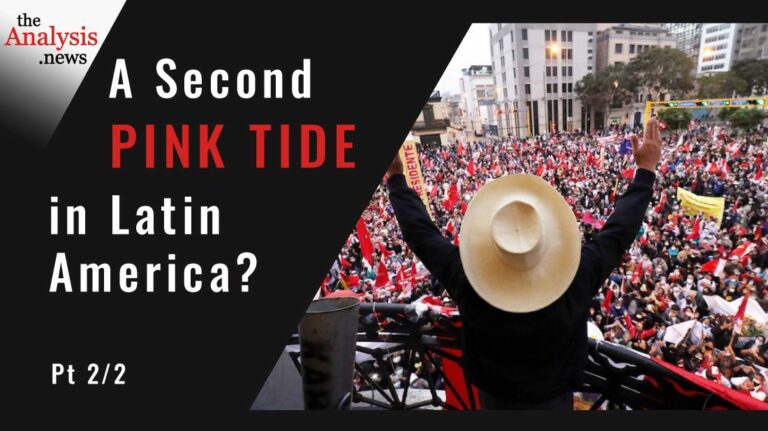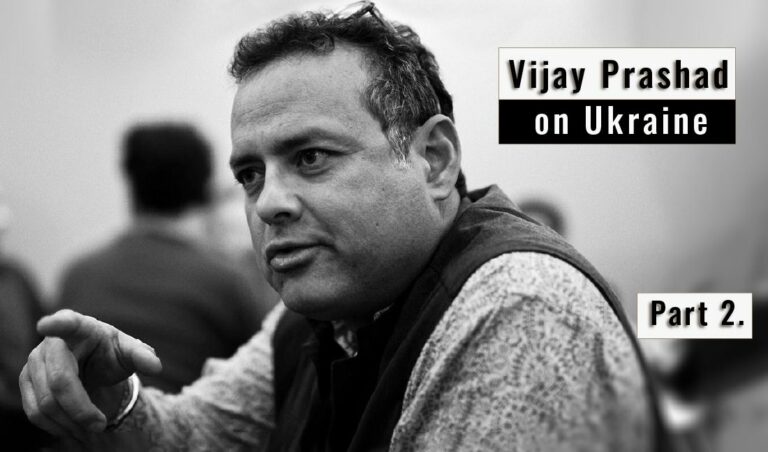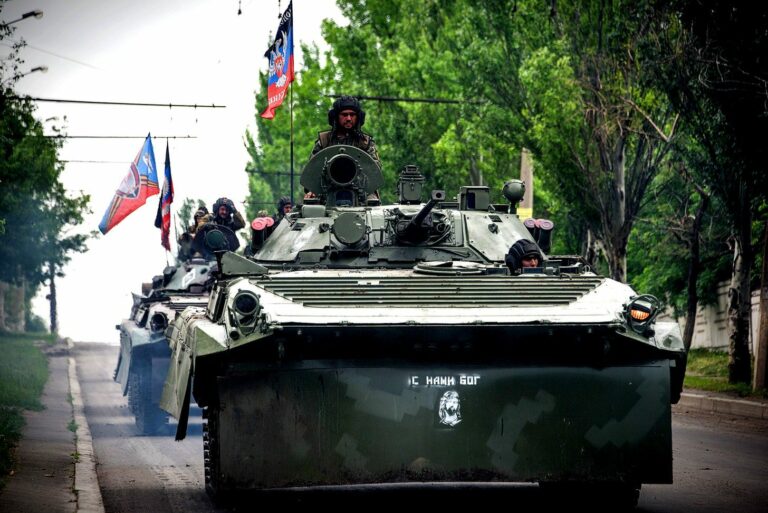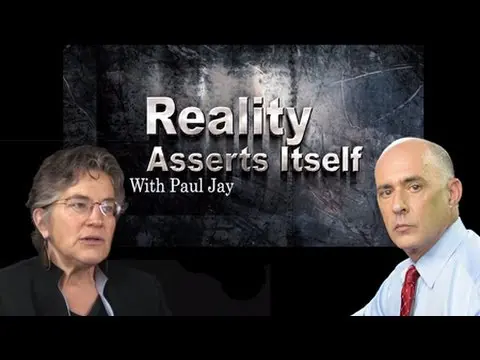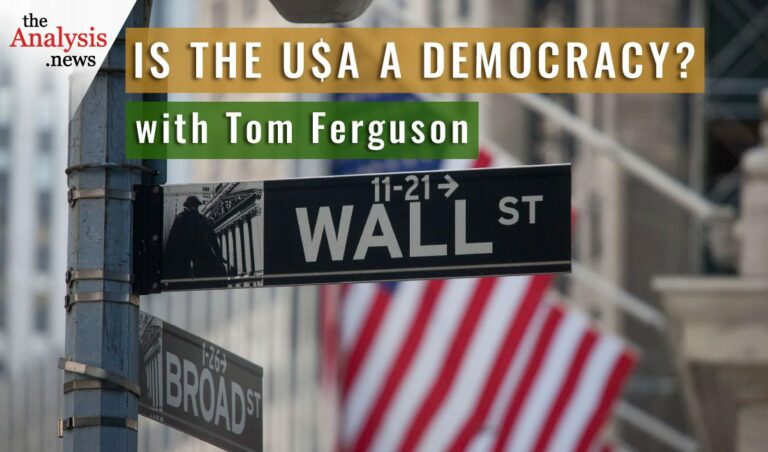Biden’s Doublespeak About Ending Yemen War -Abby Martin
Abby Martin explains what President Biden really means by the duplicitous language in his major Feb. 4 foreign policy speech on ending the Yemen war.
Transcript
Joe Biden has made a major announcement that he is taking action to end the Yemen war. This, of course, is encouraging news to the many anti-war organizations who have been fighting to stop this US backed genocide. But with so much at stake, it’s important to take a careful look at what Biden actually said.
Saudi Arabia and its allied Gulf dictatorships have been bombing the world’s poorest country since 2015 to fight the Houthi rebels that they claim threaten them. The threat the Houthis actually posed was ousting a Saudi puppet who had been sending all of Yemen’s wealth to Saudi princes, and imposing severe austerity measures on the Yemeni people at the behest of the International Monetary Fund.
As a result of the US-backed war, Yemen reels from a catastrophic humanitarian crisis, where millions teeter on the brink of starvation from a Saudi imposed blockade. According to the UN, 80% of Yemen’s 30 million people are on the verge of famine.
So ending the war, which Biden pledged to do during his campaign, is an urgent necessity. Let’s look at how he phrased his policy change during his February 4th foreign policy speech, paying attention to certain keywords:
“Ending all American support for offensive operations in the war in Yemen.”
That sounds like good news, and a significant shift from Trump, who could have stopped the US backed carnage years ago, but instead opted to veto a resolution that would have ended US weapons shipments to Saudia Arabia and the United Arab Emirates. In fact, one of his last acts was expediting MORE weapons to the coalition bombing Yemen.
But the keyword used by Biden here is “offensive” operations. Why did Biden need to add the qualifier “offensive,” rather than just say he was ending support for military operations? See, according to Saudi Arabia and its allies, the entire war is defensive! In fact, the word “defensive” was used to justify the US getting into the war in the first place under the Obama/Biden administration.
Up until now, the US has been providing training, logistical, tactical support for targeting and more. But by the Pentagon’s logic many, or even all, of these actions could be considered “defensive.”
In the same speech he said this:
“At the same time, Saudi Arabia faces missile attacks, UAV strikes, and other threats from Iranian supplied forces in multiple countries. We’re going to continue to support and help Saudi Arabia defend its sovereignty, and it’s territorial integrity and its people.”
Ok, hold on. This leaves the door open for a lot. It could mean the same exact operations against Yemen will continue, but reframed as “defending Saudi sovereignty.”
Let’s look at more of Biden’s statement:
“Ending all American support for offensive operations in the war in Yemen, including relevant arm sales.”
Ending arms sales to the Saudi coalition, used to relentlessly bomb poor Yemenis and commit countless war crimes––Like the Lockheed Martin bomb that struck a school bus in 2018, killing at least 26 children and wounding 19 more–would be a very important policy shift.
Biden says he has only “paused” such shipments–implying it’s temporary. But why did Biden announce he would be ending “relevant” arms sales, not arms sales in general? Because he knows the US will continue to sell the same weapons to the war coalition, as long as they are officially not “relevant” to the “offensive” war. And how is it even possible to monitor how thousands of missiles are used? Adding the word “relevant” could just be a way out of scrutiny for Biden.
Furthermore, Biden seems to only be talking about bombs and airstrikes by the Saudi coalition. This certainly is a major part of the suffering in Yemen, but definitely not all of it. The biggest threat to civilian life right now is the famine, mainly due to the naval blockade of the country. Biden had no words to address US support for that.
And get this, the US itself isn’t actually going to stop bombing Yemen! According to National Security Advisor Jake Sullivan, this decision will have NO impact on the US operations in the endless War On Terror against the ubiquitous threat of Al Qaeda. So whatever happens with the Saudi-Yemen war, the US will STILL be bombing and drone striking Yemenis. Drone strikes dramatically ramped up under Trump, and it is civilians who are always at the receiving end of these strikes.
Another policy shift came from the reversal of Mike Pompeo’s last minute decision to designate the Houthi rebels a terrorist organization. Biden said Friday he would remove this designation to help Yemen get critical aid. While that’s a positive change, Secretary of State Antony Blinken is still talking about sanctioning the Houthis, who he claims controls 80% of Yemeni territory. If sanctions are imposed on 80% of the country, it is hard to see how the humanitarian assistance that is so desperately needed will be distributed, even with the removal of the “terrorist” designation.
Yemen’s politicians have weighed in on how they view the new administration’s actions. Mohammed Ali al-Houthi, a member of Yemen’s Supreme Political Council said:
“We consider any move that does not end the siege and aggression against Yemen as just a formality and do not pay any attention to it…The U.S. decision to end its involvement [in the war] and command of the aggressor states is not enough. . . . Washington’s allies must also commit themselves to compensate victims, enact a package of measures to guarantee the sovereignty of Yemen, recognize its independence and legitimate right to self-defense, and consider any military action either by Arab or foreign states as a criminal act.”
Biden’s rhetoric could signal not much change on the ground. But the fact that his administration, which includes many figures who were involved in the initial support for the war, feels the need to repudiate Saudi Arabia and change course with overt backing is a testament to the anti-war movement.
For instance, just in the week prior to Biden’s announcement, a group of activists, including union members, blocked trucks in Hamilton, Ontario that were involved in shipping armored military vehicles to Saudi Arabia to protest the war.
It’s because of countless direct actions like this that this even happened. And it shows us how crucial grassroots actions are to halt the gears of the military machine. So continuing that pressure is more important now than ever, to make sure Biden follows through on this pledge and more rather than using these statements as a smoke screen to keep himself safe from anti-war criticism.
And most importantly, the US Empire has been supporting this genocidal war to begin with because of it’s dedicated support to the Saudi right-wing dictatorship, their shared domination of the region, and the fact that the Houthi fight is seen as a proxy war against Iran, which the US is hellbent on destroying. Ending the Yemen war is not enough–these core policies have to go.
Podcast: Play in new window | Download

